Our grief, their death cult… Arab Muslim violence against Jews in Israel
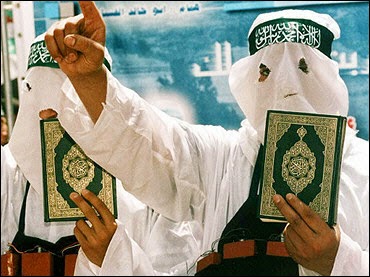 Just under 13 years ago, the No. 37 Egged bus was driving its route from Haifa’s Bat Galim neighborhood toward the University of Haifa. On Moriyah Street, near the one of the city’s main intersections, the bus stopped to pick up more passengers. As it pulled away from the stop, Hamas terrorist Mahmoud Umdan Salim Qawasmeh triggered the explosive belt strapped to his body, packed with about 10 kilograms (22 pounds) of explosives. The bus was completely engulfed in flames, and 17 people were killed, nine of them children and teenagers.
Just under 13 years ago, the No. 37 Egged bus was driving its route from Haifa’s Bat Galim neighborhood toward the University of Haifa. On Moriyah Street, near the one of the city’s main intersections, the bus stopped to pick up more passengers. As it pulled away from the stop, Hamas terrorist Mahmoud Umdan Salim Qawasmeh triggered the explosive belt strapped to his body, packed with about 10 kilograms (22 pounds) of explosives. The bus was completely engulfed in flames, and 17 people were killed, nine of them children and teenagers.
One of them was 17-year-old Asaf Tzur.
His father, Yossi Tzur, recalled this week that in the hours after receiving the news of his son’s death, he “felt like a robot. I was in shock.”
“My son was killed,” he said. “The [Israeli-Arab] terrorist’s mother, on the other hand, went completely against the customs of where she lives and refused her family’s wishes that she wear black and mourn. She told everyone she would celebrate her heroic son’s death for three days. And indeed, she greeted the guests at the mourning tent with sweets.”
 Tzur’s memories resurfaced this week when veteran Army Radio host Razi Barkai said on air that “grief is grief, even on the other side of the fence,” and that “Jewish bereaved families feel the same human emotions” as terrorists’ families on the other side. Barkai’s remarks sparked a firestorm, and while he apologized for hurting the feelings of bereaved families, he refused to retract his comments.
Tzur’s memories resurfaced this week when veteran Army Radio host Razi Barkai said on air that “grief is grief, even on the other side of the fence,” and that “Jewish bereaved families feel the same human emotions” as terrorists’ families on the other side. Barkai’s remarks sparked a firestorm, and while he apologized for hurting the feelings of bereaved families, he refused to retract his comments.
But Qawasmeh’s mother, whom the bereaved Tzur finds so difficult to wipe out of his mind, is not alone. Just this week, PMW published a photo from Fatah’s Facebook page. In the photo, the mother of Hussein Abu Ghosh and the sister of Ibrahim Alan are seen, faces beaming, handing out candy to celebrate the “wedding of martyr Ibrahim Alan in Beit Ur al-Tahta,” as the caption notes. A martyr’s funeral is considered to be his wedding to the 72 virgins waiting for him in heaven. Alan and Abu Ghosh, for those who have forgotten, are the two terrorists who carried out the stabbing attack at the minimarket in Beit Horon last month, murdering 24-year-old Shlomit Krigman and injuring another woman. Both terrorists were shot to death by a security guard.
The mother of Mohammed Sunuqrut, a 16-year-old shot dead during riots in the Wadi Joz neighborhood of east Jerusalem, said during his funeral that it was “the first time I see joy in my heart,” adding, “Thank Allah for giving him martyrdom.” A quick scan of the posts published in the PMW archive over the past few years reveals many similar cases: The mother of Ihab Maswada, who murdered Gennady Kaufman in a stabbing attack near the Cave of the Patriarchs two months ago, also expressed joy about her son’s “martyrdom.” His family members said their joy was even greater than the happiness they felt about his coming nuptials. Ayat al-Akhras, the 17-year-old suicide bomber who murdered two and injured 28 in the Kiryat Yovel neighborhood of Jerusalem, has been nicknamed “a bride in the dress of martyrdom.”
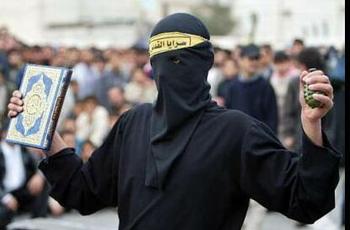 Many Jewish bereaved mothers have repeatedly expressed the hope that their child would be the last victim of this bloody conflict. But many Palestinian mothers speak in a completely different manner. The mother of suicide bomber Wafa Idris said she was proud of her daughter and hoped other girls would follow in her path. Another mother, named al-Sayoush, who has three sons serving life sentences in prison and whose fourth son, Moussa, was killed in the First Intifada, expressed hope that her children and husband would “follow Moussa’s path.” She even clarified: “I won’t be sad, since they would be following the right path.”
Many Jewish bereaved mothers have repeatedly expressed the hope that their child would be the last victim of this bloody conflict. But many Palestinian mothers speak in a completely different manner. The mother of suicide bomber Wafa Idris said she was proud of her daughter and hoped other girls would follow in her path. Another mother, named al-Sayoush, who has three sons serving life sentences in prison and whose fourth son, Moussa, was killed in the First Intifada, expressed hope that her children and husband would “follow Moussa’s path.” She even clarified: “I won’t be sad, since they would be following the right path.”
‘Martyrdom is sweet’
Palestinian public institutions broadcast similar messages and systematically glorify terrorism, suicide attackers and terrorists in general.
The Palestinian Authority’s official radio station, Voice of Palestine, plays songs of praise for suicide attacks, telling Palestinian mothers: “Don’t be sad, mother, don’t cry about my torn flesh. … We praised Allah and went for martyrdom [death in the name of Allah].” The Palestinian television show “For You” has broadcast images of “martyrs'” graves with songs playing in the background that offer comfort to the mothers: “Make sounds of joy, the blood of this martyr is a debt that we must pay back.” Hamas’ radio station has called killing Jews “worship” more than once.
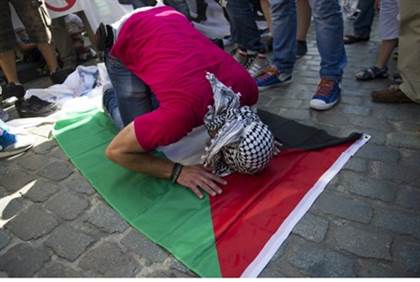
Indeed, many Palestinian mothers act accordingly, and comments like those of the Idris and al-Sayoush mothers are not unusual. The mother of Ihab Abu Salem from the village of Rantis, who carried out a terrorist attack in Jerusalem in 2003, said, “I received the news of his death as a martyr with a happy heart, because death comes to all of us — with martyrdom or without it.” Another mother, who has four terrorist sons serving 18 life sentences in Israeli prison, and a fifth son, Naji Abu Hamid, who she says died as a martyr, recently won an award from the director of the PLO Prisoners’ Affairs Authority, Issa Karake. He honored her for her strength and called her the “al-Khansa of Palestine.” Al-Khansa was a seventh century Arabic poet whose four sons were killed in the Battle of al-Qadisiyyah. She did not grieve; instead she thanked Allah for their “martyrdom.”
Terrorist Dalal Mughrabi, who participated in the 1978 Coastal Road Massacre that murdered 38 Israelis, including 13 children, has become a source of inspiration and a role model for many in Palestinian society. Her sister has repeatedly said that she is “the pride of Palestinian women.” The happiness and sense of satisfaction over martyrs’ deaths even spills over into childhood. In a conversation with two young girls that was broadcast on Palestinian television, the youngsters recite the following text: “All human beings yearn for martyrdom. What could be better than reaching heaven? … Martyrdom is a sweet thing. … Palestinian youth are not like other youth. They are hot-blooded, and they prefer martyrdom, of course, because they are Palestinian.”
The height of this horror, it seems, which embodies the doctrine of death that makes their grief so different from ours, can be seen in a Hamas television show for children. In a studio packed with dolls and cheerful colors, a group of children — among them the children of female suicide bomber Reem Riyashi, who murdered four Israelis at the Erez crossing in 2004 — are invited to watch a video re-enactment of Riyashi’s attack. An actress playing Riyashi prepares a bomb as an actress playing her daughter asks, “Mommy, what are you carrying in your arms instead of me? A toy or present for me?” The mother leaves without answering, and after seeing a TV report of the suicide bombing, the girl says: “Instead of me, you carried a bomb in your hands. Only now I know what was more precious than us.” Back in the studio, the hostess says of Riyashi’s children: “These are the children of the martyr, the heroic jihad fighter who sacrificed all that she had for the sake of her homeland. She cared less about her own flesh and blood, and for their sake, she sacrificed [herself] for Allah.”
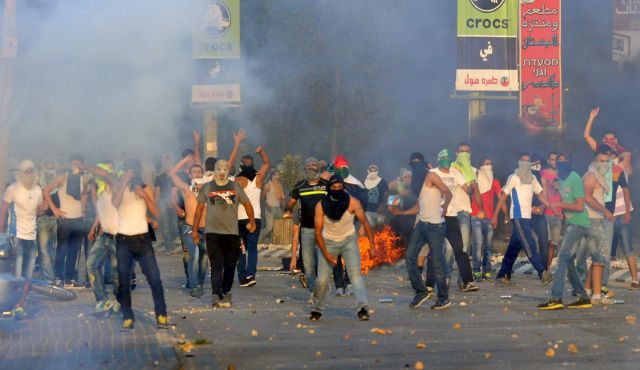 Death as an educational agenda
Death as an educational agenda
According to Middle East expert Dr. Mordechai Kedar, “The concept of life and death that we know from our culture is different in Islamic society, and even more so in Palestinian society. It’s a different culture.”
“At their funerals, martyrs are always carried on stretchers with their faces uncovered, and that is in keeping with the verse [from the Quran]: ‘And never think of those who have been killed in the cause of Allah as dead. Rather, they are alive with their Lord, receiving provision’ [3:169],” Kedar said.
“The martyrs are not considered to be dead. If you watch carefully, you will see that many people approach the body with tissue in their hands. They wipe the tissue on the martyr’s forehead and cheeks and then wipe it on their own faces and foreheads.
“The strange logic at play here apparently rests on the belief that the martyr is already in heaven, running wild with 72 virgins, so he is sweating and they are wiping him dry, wanting to participate. Passing the martyr’s sweat on to themselves is, in their eyes, the final opportunity to take part in these events in the martyr’s ‘heaven.'”
Kedar also mentioned the “scent of musk” and “the scent of heaven, according to Islam. … They speak about this a lot at martyr events.”
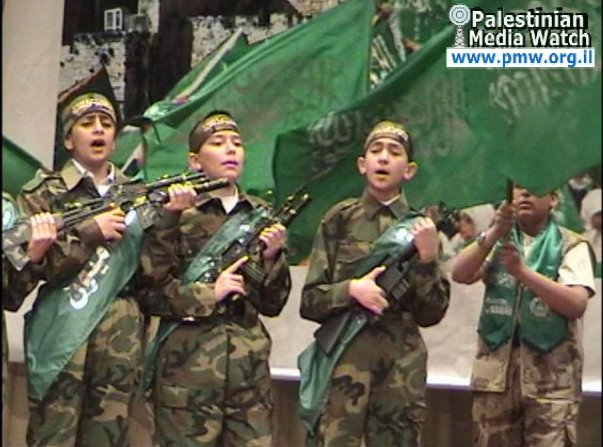 “The newspapers report that ‘the house smelled of musk from wall to wall,’ as the martyr at that point is both here and there — and the calls of joy are added to this. The funeral itself, as long as it’s the funeral for a martyr, is nicknamed the ‘zaffa’ — that is, the wedding, because the deceased is essentially not dead and, according to the Quran, is about to marry 72 virgins.”
“The newspapers report that ‘the house smelled of musk from wall to wall,’ as the martyr at that point is both here and there — and the calls of joy are added to this. The funeral itself, as long as it’s the funeral for a martyr, is nicknamed the ‘zaffa’ — that is, the wedding, because the deceased is essentially not dead and, according to the Quran, is about to marry 72 virgins.”
Kedar added that “only a few months ago, a young man and young woman were killed on the same day after attempting separate attacks. They had separate funerals, but during the funerals, their fathers ‘married them in heaven.'”
Kedar believes that radio personality Barkai, who made the controversial comments about mourning on both sides being the same, is simply not aware enough of the culture on the other side.
“His problem is not that he’s comparing death to death or mourners to mourners, it’s that he is not grasping the fact that the concepts of death and mourning are different for us and for them,” Kedar said. “In this sense, I prefer [controversial journalist] Amira Hass from Haaretz, with all her strange opinions. At least she knows the culture; she lived among them.”
Still, this embrace of martyrdom is not always the case. The father of a 13-year-old girl who fought with her parents last month and set out with a knife to the entrance gate of the Anatot community ran after his daughter, trying to save her and prevent her from carrying out her plot. It seems she was dearer to his heart than martyrdom. He arrived at the scene moments after she had been shot dead in the midst of her attempted attack, and he mourned her deeply. Parents of children in Shuafat and in Beit Hanina also tried to stop their children from carrying out attacks, but they lost control because of the madness of martyrdom. At least some of them spoke to me bitterly about the brainwashing performed on their children. A few weeks ago, Israel Hayom published an article about criticism from Palestinian intellectuals and media figures, who said their political and military leaders do not send their own children to die as martyrs.
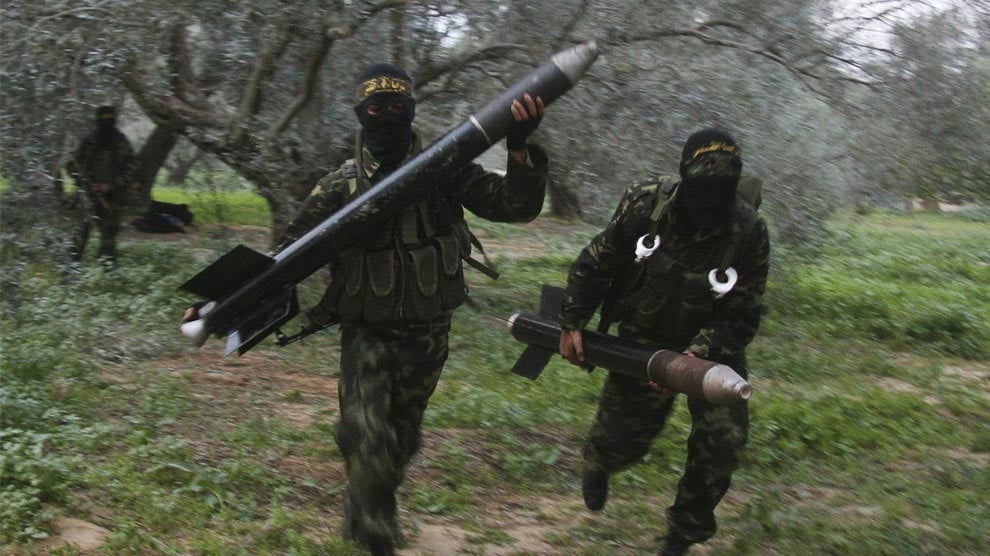 Likud MK Dr. Anat Berko proposed waiting, rather than rushing to judge Barkai harshly for his comments. Berko, a lieutenant-colonel in the reserves and the author of “The Path to Paradise: The Inner World of Suicide Bombers and Their Dispatchers,” was a terrorism researcher before she was elected to the Knesset. As part of her research, she met with and interviewed many Palestinian terrorists, including Hamas members, and she was impressed to find that many Palestinian mothers whose children became terrorists also felt a certain betrayal.
Likud MK Dr. Anat Berko proposed waiting, rather than rushing to judge Barkai harshly for his comments. Berko, a lieutenant-colonel in the reserves and the author of “The Path to Paradise: The Inner World of Suicide Bombers and Their Dispatchers,” was a terrorism researcher before she was elected to the Knesset. As part of her research, she met with and interviewed many Palestinian terrorists, including Hamas members, and she was impressed to find that many Palestinian mothers whose children became terrorists also felt a certain betrayal.
“More than a few would have liked a different fate for their children,” Berko said. “Often, there is one face for the cameras and one face for reality. When the camera is off, they curse and cry.”
Berko also spoke of a strong sense of exploitation among Palestinian mothers and fathers.
“I interviewed the mother of a martyr,” she said. “Despite the fact that they gave her financial benefits, she blamed the leadership, saying the leaders did not send their own children toward the same fate that her son met. In contrast, on our side, the children of our generals and leaders also serve in the army and may serve in combat roles. Over there, the leaders send other people’s children to become cannon fodder.”
With that, Berko added that the idea of heaven and that terrorists become martyrs is strongly held among many Palestinians.
“Many of them really believe that the terrorists who die while carrying out an attack are headed somewhere better, that their bodies will become whole again,” she said. “Sometimes the emotional cries after a ‘martyr’ dies are genuine and sometimes they are intended just to appease society, much of which sanctifies death.”
In this context, veteran journalist and researcher of Palestinian affairs Pinhas Inbari recalled the story of a suicide bomber from Jenin in the Second Intifada who deliberately protected his testicles prior to attacking, honestly believing he would need them when he arrived in heaven. Inbari added that some of the reward money given to the families of terrorists is contingent upon their recitation of texts praising death and upon them saying how happy they are about their fate.

“Of course, there are some people who are really dumb enough to be happy with their fate,” he said.
Perhaps the appropriate perspective to take on the issue raised by Barkai’s comments can be found in the words written by educator Avi Rath, who works in the religious Zionist community. Last weekend, he made waves when he wrote a column published in the “Shabbaton” newsletter under the title “Tears of a Princess.” Rath did not address the emotional cries, joy or heaven. Instead he wrote, among other things: “The Jewish mother taught her son heroism, courage and humility, and she is proud that he risks his life for the sake of his friends, full of dedication. In contrast, the mother of the murderer, who taught her son hatred and evil, is proud of her son the martyr, who stabs helpless women and children in their beds.
“While tears are tears, there is no connection between the tears of Shoshana, the mother of social worker [and terror victim] Tali Hatuel and grandmother of her four [murdered] grandchildren, Hila, Hadar, Roni and Merav, and the mother of murderers Ibrahim, Hammad and Faisal Abu Maj’ra, may their memories be blotted out, who admitted to killing a 2-year-old baby. There is no connection between the tears of the mothers of [terror victims] Rabbi Udi and Ruth Fogel and the tears of the mothers of murderers Hakim and Amjad Awad, may their memories be blotted out, who had not one shred of humanity when they murdered a 3-month-old baby in her cradle.”
Rath expressed what many bereaved families feel: that Barkai’s comparison between feelings of grief here and there was deeply upsetting. The families of soldiers Hadar Goldin and Oron Shaul, who fell in Gaza in 2014’s Operation Protective Edge and whose bodies have not been returned to Israel, have already spoken out about how they feel, as has Tzur, who lost his son in the Haifa bus bombing. Barkai, who himself is a bereaved brother, is satisfied for now with sending “an embrace to the bereaved families,” but he still is not retracting his comments.
http://www.israelhayom.com/site/newsletter_article.php?id=31873

A country where Jewish lives do not matter… They are complicit in the murder of Jews.